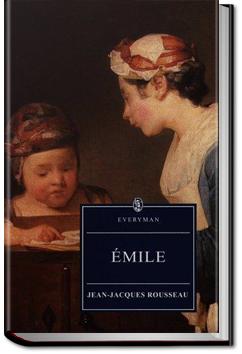
Then the child becomes masterful, jealous, deceitful, and vindictive. So a child is naturally disposed to kindly feeling because he sees that every one about him is inclined to help him, and from this experience he gets the habit of a kindly feeling towards his species but with the expansion of his relations, his needs, his dependence, active or passive, the consciousness of his relations to others is awakened, and leads to the sense of duties and preferences.

Something does us good, we seek after it but we love the person who does us good something harms us and we shrink from it, but we hate the person who tries to hurt us. We do not become passionately attached to objects without feeling, which only follow the direction given them but those from which we expect benefit or injury from their internal disposition, from their will, those we see acting freely for or against us, inspire us with like feelings to those they exhibit towards us. What transforms this instinct into feeling, the liking into love, the aversion into hatred, is the evident intention of helping or hurting us.

At first this attachment is quite unconscious the individual is attracted to that which contributes to his welfare and repelled by that which is harmful this is merely blind instinct. Every child becomes fond of its nurse Romulus must have loved the she-wolf who suckled him. Self-preservation requires, therefore, that we shall love ourselves we must love ourselves above everything, and it follows directly from this that we love what contributes to our preservation. The book concludes with a profile of Emile's prospective bride, Sophie, that emphasizes the role of mothers in educating their children but encourages women to be submissive to their husbands-a view that excited controversy even among Rousseau's contemporaries and helped inspire Mary Wollstonecraft's A Vindication of the Rights of Woman. The fourth part explores the cultivation of sentiment, with particular focus on natural religion. Rousseau's five-part approach devotes the first three sections to Emile's early education, including the child's interactions with the larger world and the selection of a trade. With its theories on the retention of innate human goodness and the avoidance of corruption from bourgeois society, the book offers prime examples of the author's philosophy. Emile recounts a boy's education, and Rousseau considered it the most important of his writings.

A foundational text of Western education, this 1762 treatise served as a model for a new approach to teaching during the French Revolution.


 0 kommentar(er)
0 kommentar(er)
